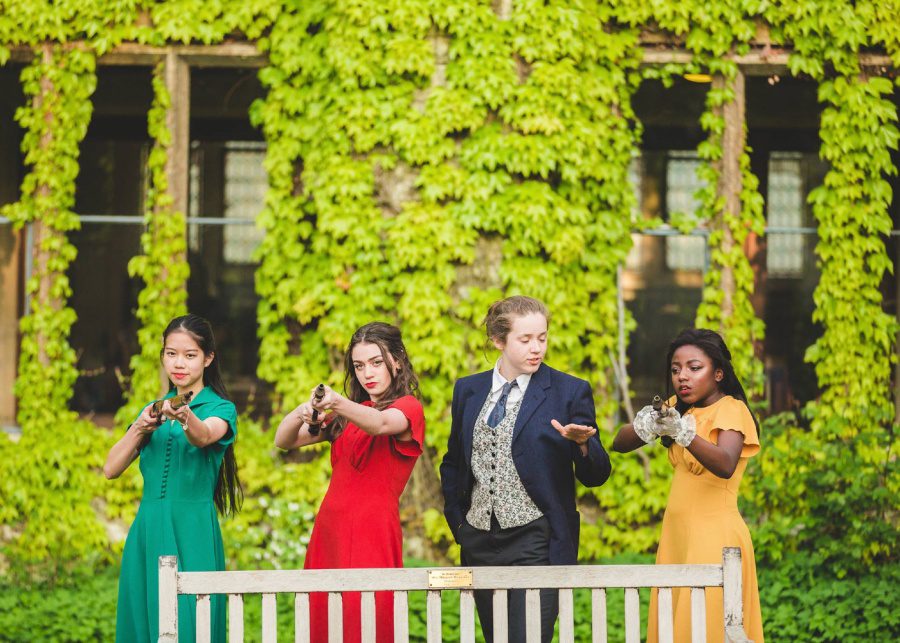
The good, the bad, and the surprises – here’s what I wish somebody had told me before I went boarding in the UK.
Going from a local kindergarten to a local primary school, followed by secondary school via the Government’s ‘through-train’ system, my family’s plan for my early schooling in Hong Kong seemed seamless. And for several years, the plan worked – until it didn’t. Due to huge academic pressure, I attended class after class (after school) for extra tuition, not because I was lagging behind, but because that’s just what everyone did at the time. By the time I was a Form Two student in a local girls’ school, the pressure to excel was overwhelming. And the more overwhelmed I felt, the poorer I performed at school – which only made things worse, and started the cycle all over again. So, when I heard that some of my friends were going to boarding school abroad, I jumped at the chance to join them and break the cycle.
With the increased awareness of stress and mental health, I had hoped that the status quo in Hong Kong might have changed in the ten years since I first left Hong Kong for boarding school. But, instead, it seems like our society has become even more competitive. In addition, the recent socio-political unrest has resulted in a wave of parents and students interested in studying abroad and looking for tips on how to get into the top boarding schools abroad.
If you’re a parent worried about new changes to the education curriculum, or – like me many years ago – you’re a student overwhelmed by the academic pressure in Hong Kong, the option to study abroad may seem very attractive; it may appear to be the best way to ‘escape’ from this city, from your fears and anxieties. But, although the idea of getting away may be exhilarating, the reality of boarding school isn’t all sunshine and rainbows, and the grass isn’t always greener on the other side. So, here are some things that I wish I had known before I went boarding school in the UK.
Boarding school abroad: The grass isn’t always greener

1. The weather
You know what they say: you can’t get more British than talking about the weather. But, hear me out – it’s gloomy there, okay? Depressing, even, with all the rain and the piercing winds, especially if you’re up north. The skies are grey on most days, and daylight is terribly short during winter. I remember going to school in the freezing cold when the sun wasn’t even out yet; then, by the time we started heading back to the boarding house after our extra-curricular activities (at around 5pm), the sun would already have set. It probably doesn’t sound too bad in words, but, trust me, it’s important to be mentally prepared for the lack of daylight for months on end before you pack your bags for boarding school in the UK.
2. Homesickness, loneliness, and the feeling of isolation

Going to boarding school in the UK is the first time many teenagers leave home for such a long period of time, and travel so far away from their family. This was the case for me, too. At first, I enjoyed my own company; I thought I was settling in well. But, the initial excitement of the ‘honeymoon’ phase soon wore off. And as I faced more challenges at school, I began to feel that I was crumbling. “I’m lonely,” I thought. “I want to go home.” And that’s when the homesickness hit me like a train.
But all was not lost! For me, it helped to bring over plenty of Hong Kong snacks and cup noodles to the UK – they were my literal comfort food as they reminded me of the taste of home. And while I’d like to believe that the food served at boarding schools in the UK varies between institutions, I’d advise that – if you’re not a fan of potatoes and decadent desserts – you either need to get used to these staples, or prepare enough instant rice and noodles to last the term. Don’t say I didn’t warn ya!
Furthermore, you must learn how to take care of yourself, especially your own mental wellbeing. Hopefully, with conversations about mental health becoming more common, your boarding school will provide you with some guidance and support. But whether it does or not, this is an important time in your life to start paying attention to your mind and body (if you haven’t already).
3. Racism and bullying (yes, they really exist)

You may not have a language barrier in the UK, but, unfortunately, people aren’t always as friendly and open-minded as you would hope. That being said, intolerance is a common human trait and racist people exist in every country. Also, puberty is a strange and confusing phase that can cause even the kindest kids to give in to their worst impulses. Although unkind behaviour is usually due to a lack of emotional maturity, that doesn’t make it hurt any less when you’re on the receiving end. Therefore, you need to be prepared, and need to prepare your children, for any nasty individuals, should they appear. Establish a good support system for your kids, and encourage them to speak up if they encounter any bullying – touchwood.
4. Making friends in the boarding house
Settling in a new country is always difficult. Luckily, making new friends who are going through the same thing can make this process easier – given that you’re able to make friends, that is. LOL, no offense, but if you’re introverted like me, you know what I mean. Some of us need to make an extra effort to meet new people, and watching groups (or, dare I say, cliques) form within weeks of the beginning of the term can make us more anxious than ever. The fact is, cliques exist in UK boarding schools – just like any other school in the world. But at boarding school, you’ll likely be around the same people 24/7 because you’re living in the same boarding house, potentially for many years until you graduate. So, being on good terms with them is probably the best thing to do.
All that being said, I have fond memories of my time at boarding school. Yes, many things were different – but often in a good way. So here are the things I enjoyed when I was boarding in the UK.
What I loved about boarding school in the UK

1. Freedom!
Sorry if you’re reading this, mum and dad! But, honestly, I preferred living away from home. (More accurately speaking, I prefer living alone, but that’s just me and it’s not always possible in boarding school.) It was empowering to feel that I was in control of my own life; not that I was making huge decisions, but it was more about the accumulation of small decisions that I was able to make for myself. From choosing the food I put on my plate, to what I planned to do after school, I felt that I enjoyed a greater sense of freedom when I was in the UK.
2. Less emphasis on grades
I recall being upset about getting a B in one of my geography assignments during my first year in boarding school. Yet, my teacher was so supportive and he said a B was “very good”. I was stunned. (Isn’t there a joke about Asians getting an A means they’re ‘Average’, and B stands for ‘Below Average’?) I soon realised that teachers were generally much more encouraging than the ones in Hong Kong. They appreciated curiosity and creativity, and they often opted for positive, rather than negative, reinforcement. Moreover, sports and the arts were regarded more highly in schools in the UK than in Hong Kong. Those of us who excelled in these areas felt valued even if we weren’t that good at studying.
3. Being away made me appreciate #HomeKong and my family even more

Every time I came back to Hong Kong for the holidays, I felt as if I was looking at the city with fresh eyes. Not only was Hong Kong so dynamic and exciting, but also I never actually had the time and space to take it all in when I was studying here. Being home during holidays meant that I could try out the new restaurants, go cafe-hopping, and explore the 852. Also, I learned not to take holidays in Hong Kong for granted (flight tickets were expensive, after all), so I was extra grateful for every moment that I was able to spend with my family – especially if my return coincided with Chinese New Year and the Mid-Autumn Festival.
Looking back, my boarding school life in the UK had its ups and downs. Nonetheless, the experience helped shape me into a more adaptable and independent person. It was tough, but it was essential to becoming who I am today.
That said, I probably wouldn’t do it all over again – just saying…!

